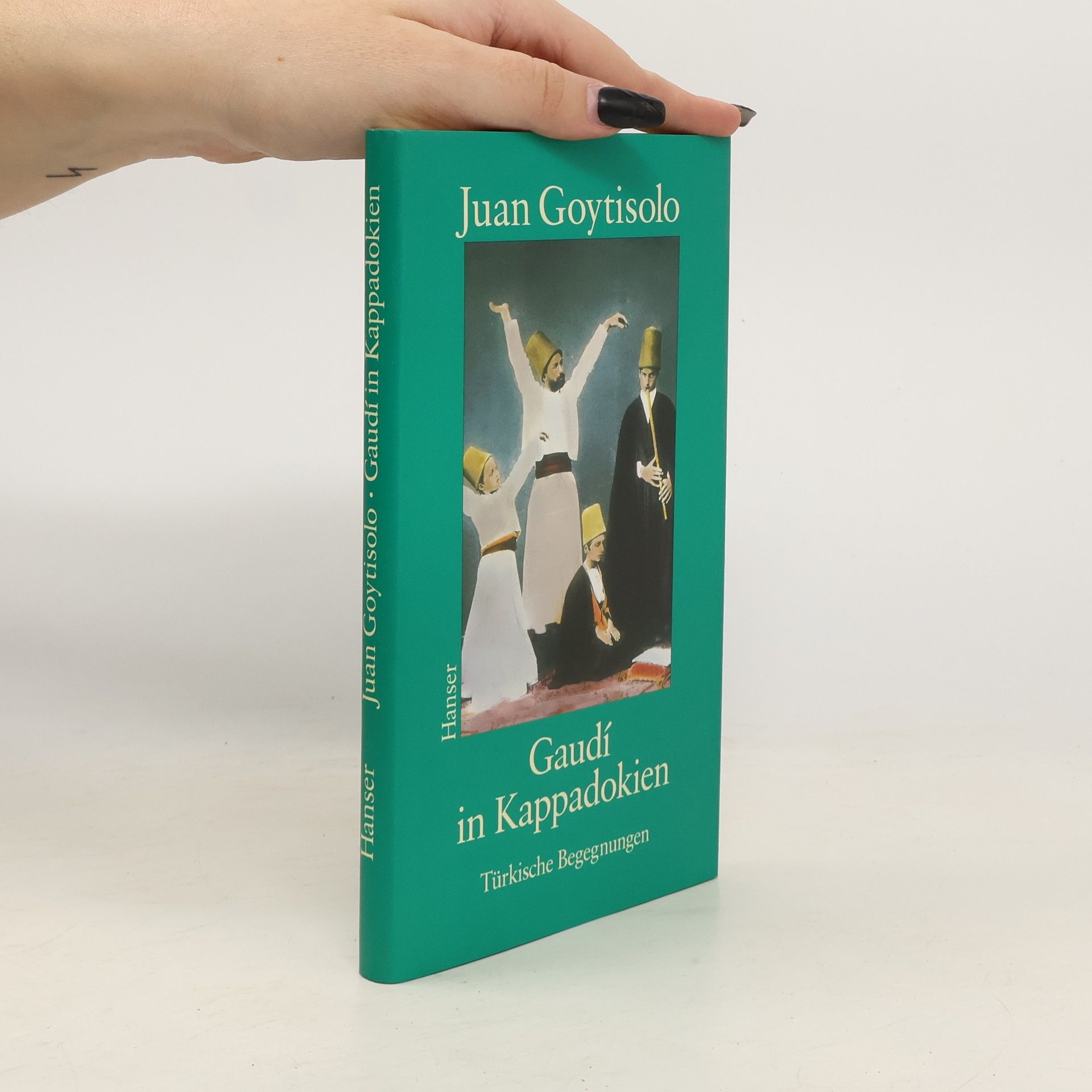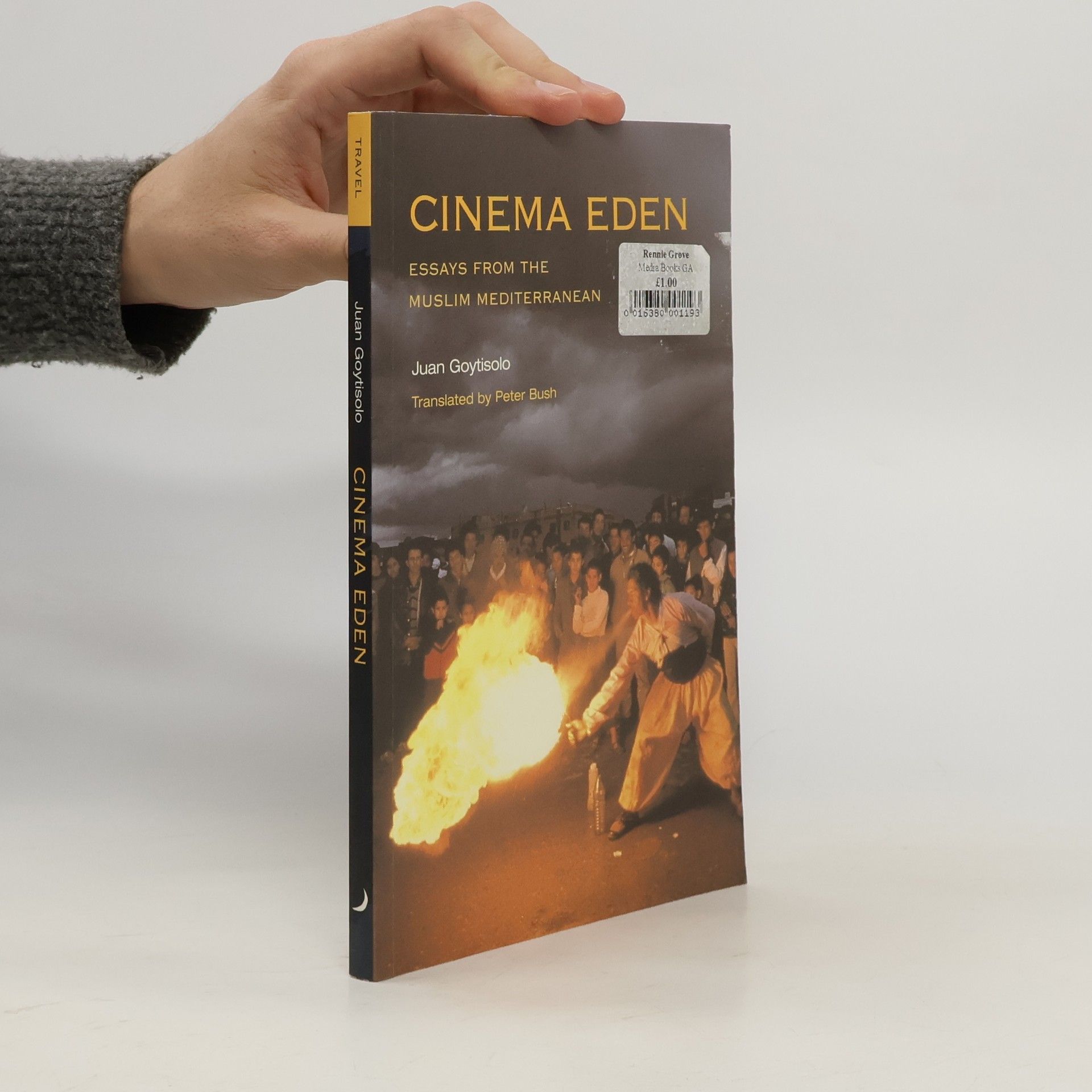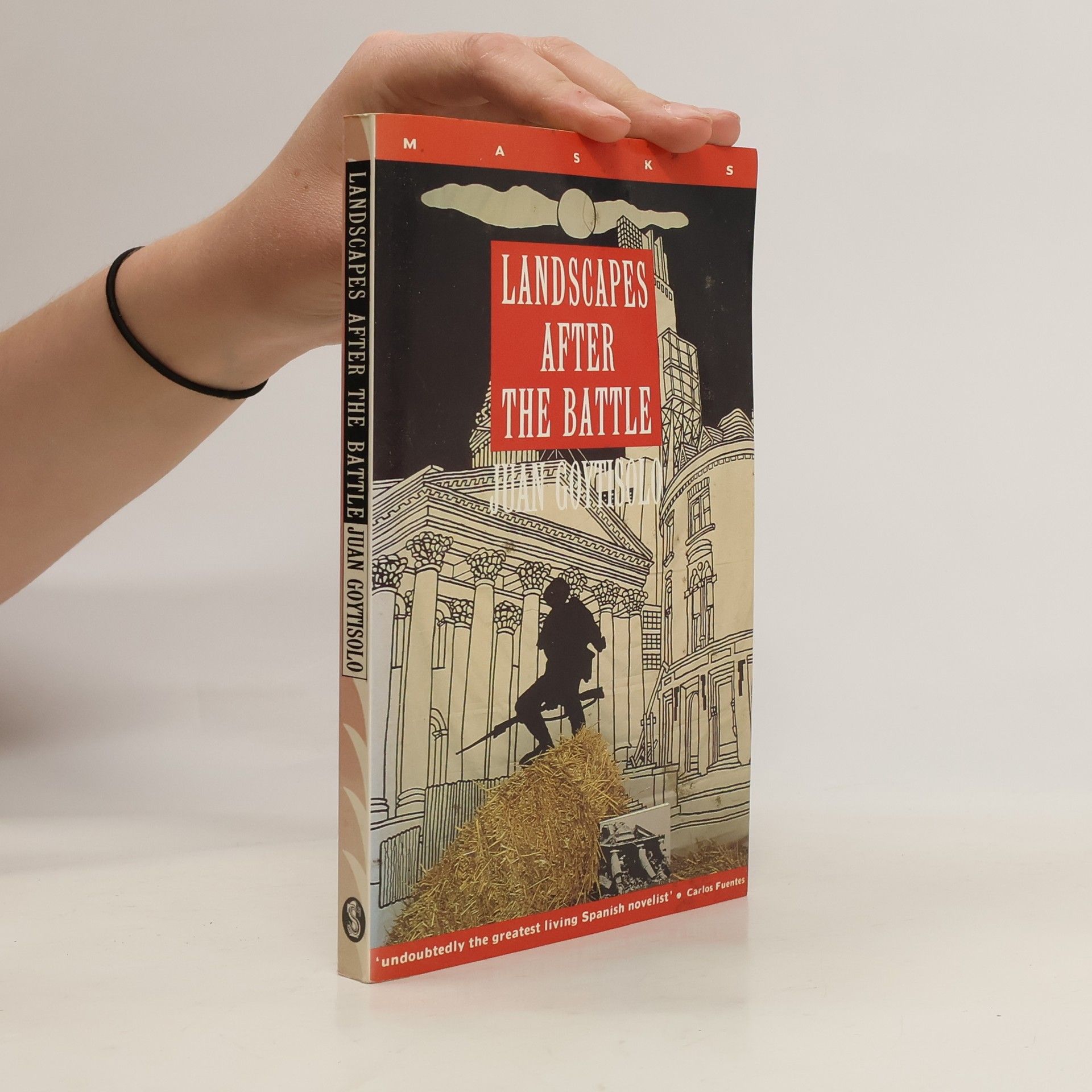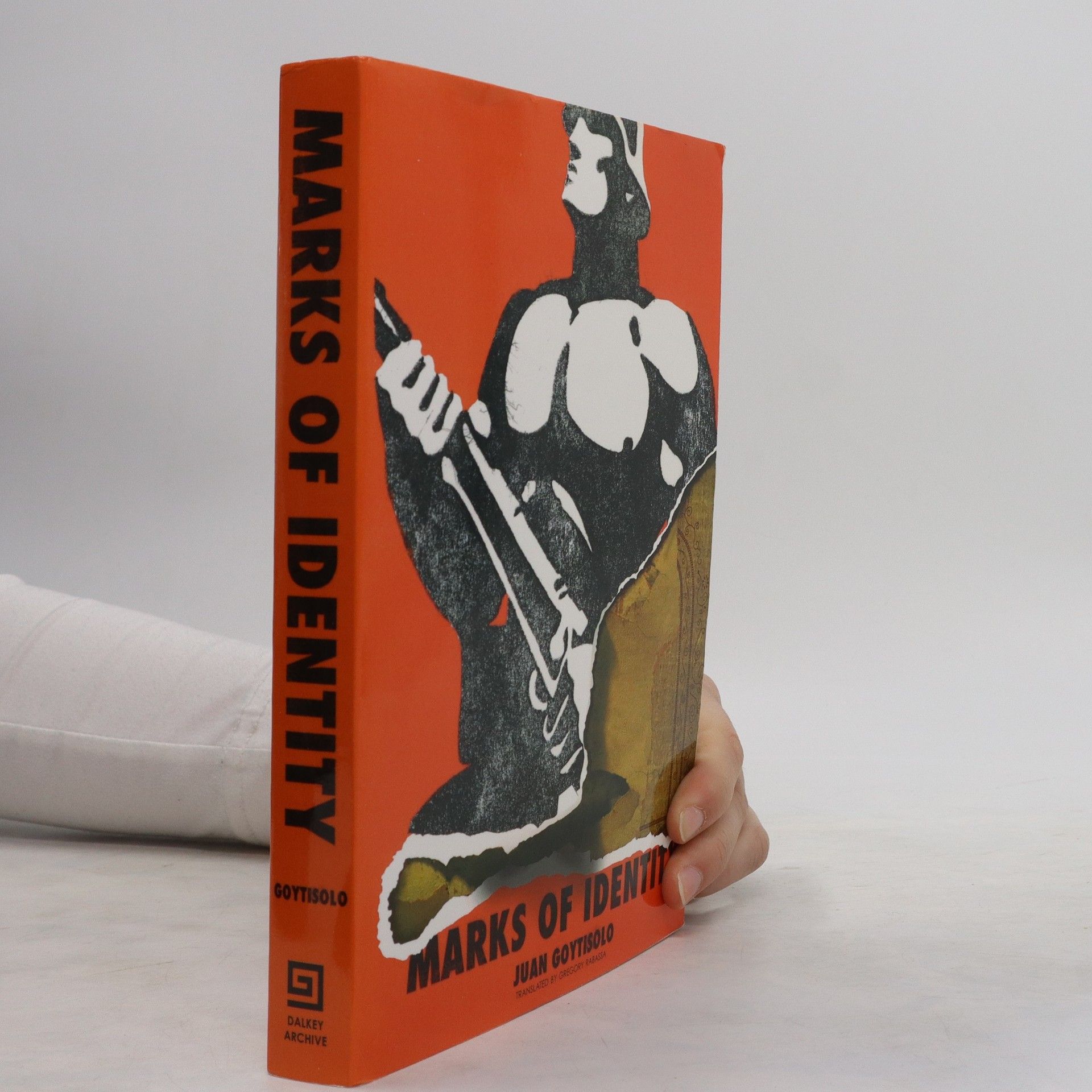Un inglés en la corte del Sultán
- 12 pages
- 1 hour of reading
Juan Goytisolo established himself as a leading voice in contemporary Spanish literature, consistently pushing the boundaries of traditional fiction. His early work engaged with social commentary, but his exile and subsequent life in Morocco spurred a more experimental approach. Goytisolo masterfully blended poetry, painting, fiction, and non-fiction, exploring the possibilities of language and genre. His unique style and profound questioning of identity and the nature of narrative make his work a significant contribution to modern letters.







Resumen: recopilación de los dos libros anteriores sobre la Chanca. La literatura y la fotografía enriquecidas ahora con la música de Sensi cantando poemas de Valente acompañada por las guitarras de "Niño de la Manola" y Miguel Angel García.
Crisol de civilizaciones y gozne geográfico entre Oriente y Occidente, Estambul es el auténtico corazón de Turquía, y la impronta del Imperio otomano, que se remansa a lo largo de los siglos XVI, XVII y XVIII, es su soberbio legado para la cultura universal, a cuya fascinada contemplación y vivencia han acudido y siguen acudiendo escritores y curiosos viajeros de todos los confines del mundo. Juan Goytisolo, con su pasión y maestría literaria características, abre en canal la sociedad del Estambul otomano —de sultanes a jenízaros—, apegada tenazmente a las tradiciones, igualitaria y móvil, y nos da a conocer sus creencias, tradiciones y costumbres, desde su profundo amor a la naturaleza hasta sus rituales de tránsito, desde el hammam hasta el mazarlik, pasando por el Gran Bazar y los caravanserrallos. Asistimos, pues, a la exaltación y reivindicación de una sociedad mucho más libre de lo que se nos ha hecho creer, y sin cuya versatilidad cultural y artística sería imposible entender la literatura y las artes occidentales.
To many, Juan Goytisolo is Spain's greatest living novelist and her sternest critic. An exile from his native land for over forty years (he left Madrid in 1957 to escape Franco's regime), he has mercilessly sought to overturn Spain's Catholic homogeneity by remembering the cultural influence of her medieval and Jewish populations. Few European writers know the Islamic shores of the Mediterranean as intimately as he does. In these essays about Morocco, Turkey, and Egypt, Goytisolo celebrates a world where ritual matters and tradition is alive, where saints live, story-tellers weave their enchantments nightly, and where honor and dignity preserve the importance of the individual. Goytisolo is to Spanish writing what Almodovar is to Spanish cinema. These essays are a fine reading of the vast, heterogeneous mosaic of Islam against the everyday truculent images of the mass media. "A deliciously pretentious aesthete, Goytisolo unashamedly romanticizes popular Islamic life in beguiling, immensely readable, poetic prose."-Publishers Weekly
Juan Goytisolo ist ein Reisender zwischen den Welten. Der Umstand, daß der gebürtige Spanier abwechselnd in Paris und in Marrakesch lebt, prädestiniert ihn zum Mittler zwischen Orient und Okzident. Seine ebenso sachkundigen wie einfühlsamen Essays und Reportagen tragen dazu bei, die Stereotypen und Klischees zu korrigieren, die bis heute das Bild des Islam im Westen prägen, und beleuchten eine Wirklichkeit jenseits der Legenden, die seit Jahrhunderten den Blick des Abendlands auf das Morgenland verstellen. Goytisolo, der die Welt des Islams zwischen Tanger, Timbuktu und Samarkand bereist hat, fordert uns auf, eine faszinierend vielseitige und lebendige Kultur zu entdecken, deren reiches Erbe vielerorts Gefahr läuft, von der wirtschaftlichen und kulturellen Globalisierung überrollt zu werden. Seine Themen reichen von der Geschichte der Muslime in der sich auflösenden Sowjetunion über türkische Busbahnhöfe, die jemenitische Architektur und den Islam in Schwarzafrika bis hin zum Treiben der Gaukler auf dem Djemaa el-Fna in Marrakesch. Dabei versäumt es Goytisolo nicht, auf eine gefährliche Alternative hinzuweisen, die heute für viele muslimische Länder zu einem Teufelskreis zu werden droht: die Alternative, sich zwischen einer die Identität verbürgenden Tradition und Notwendigkeit des Wandels entscheiden zu müssen.
En plena Guerra Cívil, el jovencito Abel decide fugarse de casa de su abuela, con quien no se lleva bien, para recalar en casa de su tía abuela Estanislaa, quien vive en El Paraíso, una decadente casa señorial, ubicada en el Pirineo catalán, que simboliza los fracasos de esa familia. Abel se ha quedado huérfano y en casa de su tía abuela le acogen por piedad, aunque en verdad no recibe demasiada atención. Abel toma contacto con la gente del entorno: los soldados republicanos ahí guarnecidos, los vagabundos y los otros niños ahí refugiados. La Guerra se ha hecho notar en los niños y ha terminado por afectar su sentido de la brutalidad. Tanto es así, que al oír las tremendistas consignas que escuchan por la radio, pondrán en marcha una idea que traerá consigo trágicas consecuencias.
Winfried Jenior, Kassel, 1998. 237 S., Pbd.U. - Band 2 der Reihe Andalusien/sehr gutes Exemplar -
Cuando desde Occidente se habla de la cultura árabe, no siempre se hace la necesaria distinción entre sociedad civil y religión. El desconocimiento que esto origina desemboca en una retahíla de tópicos y mitos negativos que nada tiene que ver con la fértil civilización arabo-musulmana, a la que tanto debe esa misma cultura occidental. Pero tampoco se puede obviar las contradicciones y conflictos que la apropiación política de la religión ha originado en determinados países del Sur y de Oriente. Para dar respuesta a todos estos interrogantes, "Mil y una voces" dibuja el mosaico, amplio y complejo a la vez, de la cultura que también ha demostrado ser la cultura de la tolerancia.